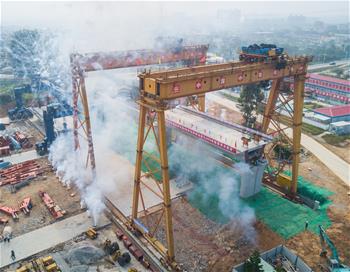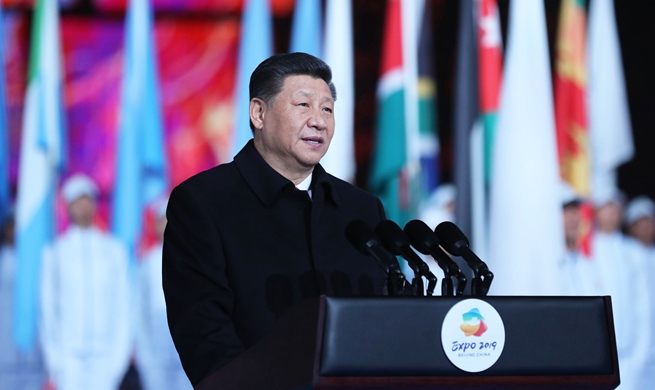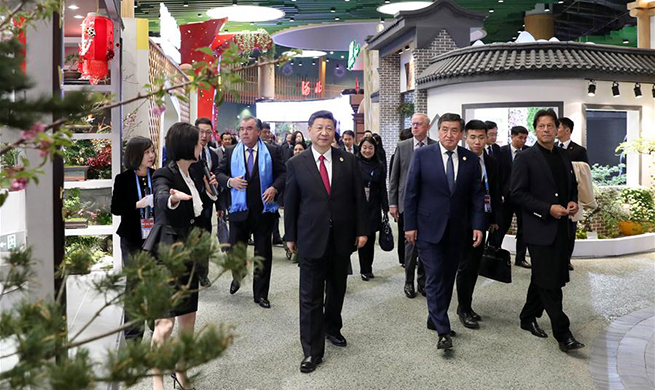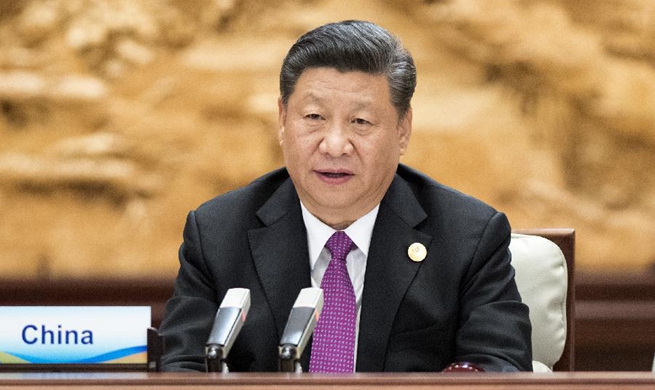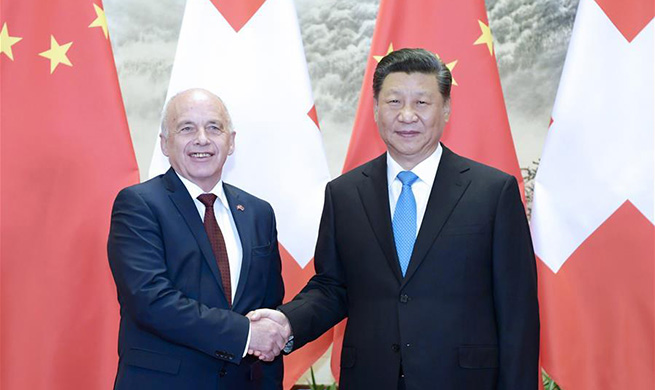MADRID, April 29 (Xinhua) -- Spanish Socialist Party (PSOE) led by current Prime Minister Pedro Sanchez took lead in Sunday's general election in Spain with 28.7 percent of the votes. The party secured 123 seats in the 350-seat Spanish Congress of Deputies.
Experts believed that the loss of People's Party and the split in the ring wing helped the Socialists gain the victory in the general election.
LOSS OF PEOPLE'S PARTY
The PP lost around 3.5 million voters, 71 seats and 16 percent of the votes from the 33.01 percent they gained in June 2016.
Continued corruption scandals which have surrounded the party in recent years and their management of Catalan crisis was one of the factors leading to the result, experts said.
In May 2018 the PP was found guilty of having benefitted financially from the "Gurtel" corruption scandal. This led directly to Sanchez presenting the no-confidence motion which saw the PSOE oust the PP government of Mariano Rajoy at the start of June last year.
In addition, the PP also lost votes for their management of the Catalan crisis.
"Rajoy's government lacked the political will to resolve the situation and when they did act, it was too late," explained Jaime Ferri, professor of political sciences at the Universidad Complutense de Madrid, to Xinhua.
The solution of 38-year-old Pablo Casado, who succeeded Rajoy as PP leader, was to shift the party further to the right. According to Rafael Barbera, an expert in political communication at the Universidad Francisco de Vitoria, this tactic made the PP become "trapped between the more moderate Ciudadanos" and the extreme right wing Vox party.
THE LEFT UNIFIED WHILE THE RIGHT SPLIT
While the POSE is able to position itself as the main party on the left, with Unidos-Podemos losing ground, the situation was very different on the right where the votes were spilt between three parties.
Rather than centering support on the PP as in previous elections, this time the right wing votes were split between the PP, Ciudadanos and the extreme right wing Vox.
The three parties won almost as many votes between them (11,169,796) as the PSOE and Unidos Podemos, (11,213,684).
The arrival of the extreme right wing party Vox in the Spanish political landscape with 24 seats and over 2.5 million votes was another factor in the election.
Barbera told Xinhua that Vox had gained support as a reaction to the Catalan crisis.
"They say they will protect the unity of Spain. The Catalan independence movement upset a lot of people in the rest of Spain and Vox has positioned itself at the head of those people," he said.
It is clear that Vox took a lot of votes from the PP, but fear for the extreme right also had the effect of mobilizing the votes for the left wing.
WHAT HAPPENS NOW?
Prime Minster Sanchez said his PSOE has "won the future and left the past behind" after the party took lead in Sunday's general election.
Sanchez now has the task of forming a government. He will need to support of 176 deputies in the Congress of Deputies to have a majority and need to possibly support with more than one party.
Unidos-Podemos leader Pablo Iglesias has already said he is willing to negotiate a coalition but the 165 seats of the PSOE and Podemos combined still leaves Sanchez needing other political partners.
The alternative is to form a coalition with Ciudadanos, although that appears complicated as Ciudadanos leader Albert Rivera ruled out sharing a government with Sanchez on numerous occasions during the election campaign.
A pact with Ciudadanos would also be unpopular with PSOE grass roots and members in the street chanting "with Rivera no!" as Sanchez addressed them on Sunday night.
Whoever Sanchez finally pacts with, a long process of negotiations is expected.


